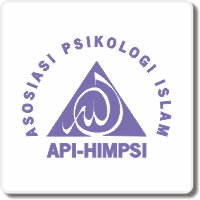IMPLEMENTATION OF SELF-REGULATED LEARNING ON JUNIOR HIGH SCHOOL STUDENT OF LOW SOCIOECONOMIC STATUS
DOI:
https://doi.org/10.32923/psc.v2i1.1594Keywords:
motivation, self-regulated learning, junior high school student, low socioeconomic statusAbstract
The purpose of this study was to determine the application of self-regulated learning interventions to increase learning motivation and learning abilities in junior high school students who come from families with low socioeconomic levels. The intervention was given for five sessions through psychoeducation and assignments. The subject of this study is a male, 15 years old. This study uses a qualitative method with a case study approach. Data analysis using triangulation techniques. The results of the analysis of observations, interviews, and assignment documents show that there are differences before and after the subject was given intervention. In general, self-regulated learning intervention has a positive impact on learning motivation and learning abilities of the subject. Several factors that support and inhibit intervention were explained. Some suggestions are given to develop the further intervention.
Downloads
Published
Issue
Section
License
Copyright Notice
The Psychosophia: Journal of Psychology, Religion, and Humanity is under the Creative Commons Attribution 4.0 International (CC-BY 4.0) License, according to which:
1) Authors retain copyright and grant the journal the right to first publication, with the work simultaneously licensed under the Creative Commons Attribution (CC-BY 4.0) that allows the sharing of articles published with the acknowledgment of authorship and the initial publication in this journal.
2) The authors are authorized to make additional contracts separately for distribution of the version of the work published in this journal (for example, publication in an institutional repository or as a chapter of the book), as long as there is recognition of authorship and initial publication in this journal.
3) Authors are authorized and encouraged to publish and distribute their work online (for example, in institutional repositories or on their personal pages) at any time before or during the editorial process, as it increases the impact and reference of the published work.






